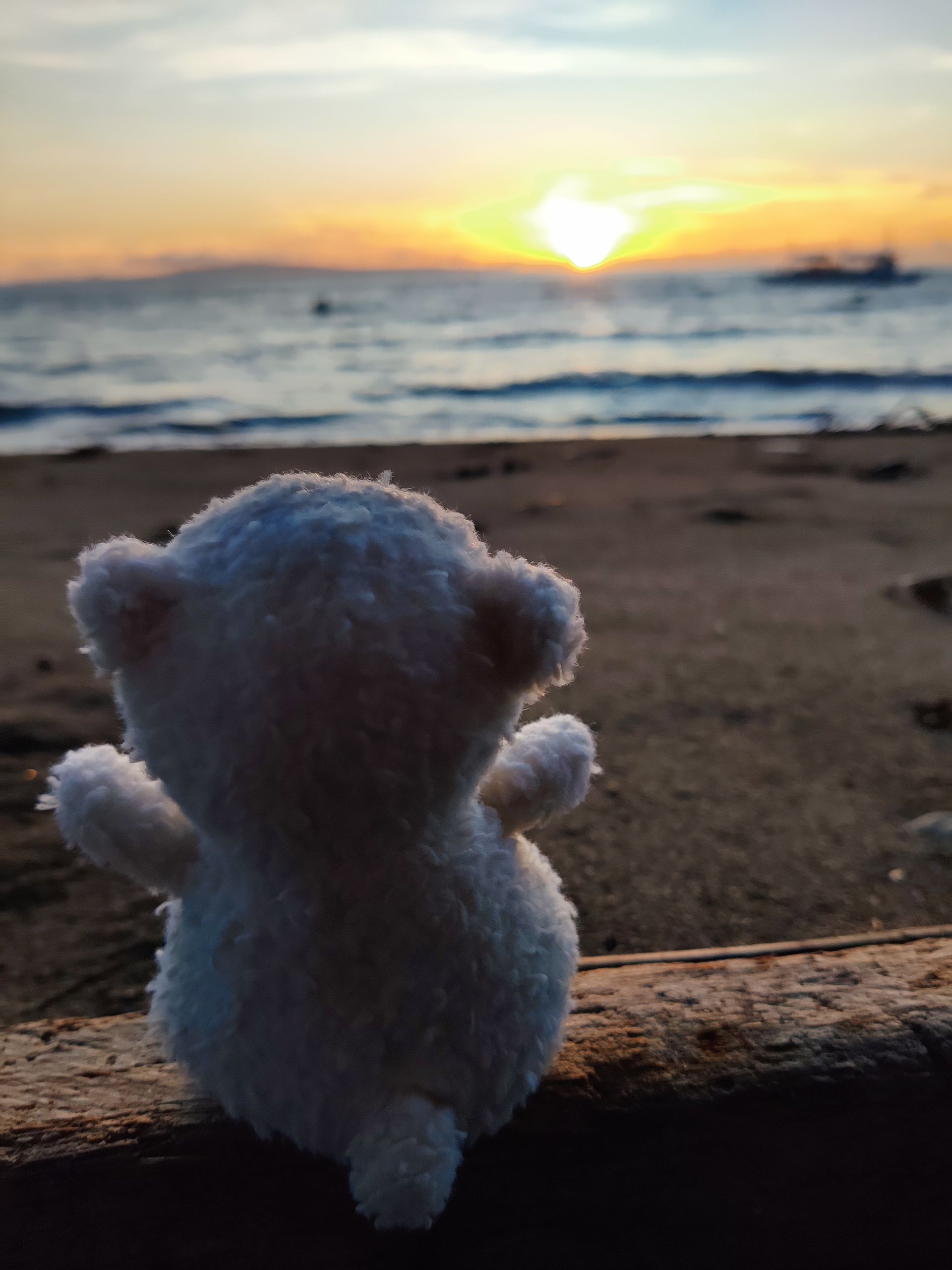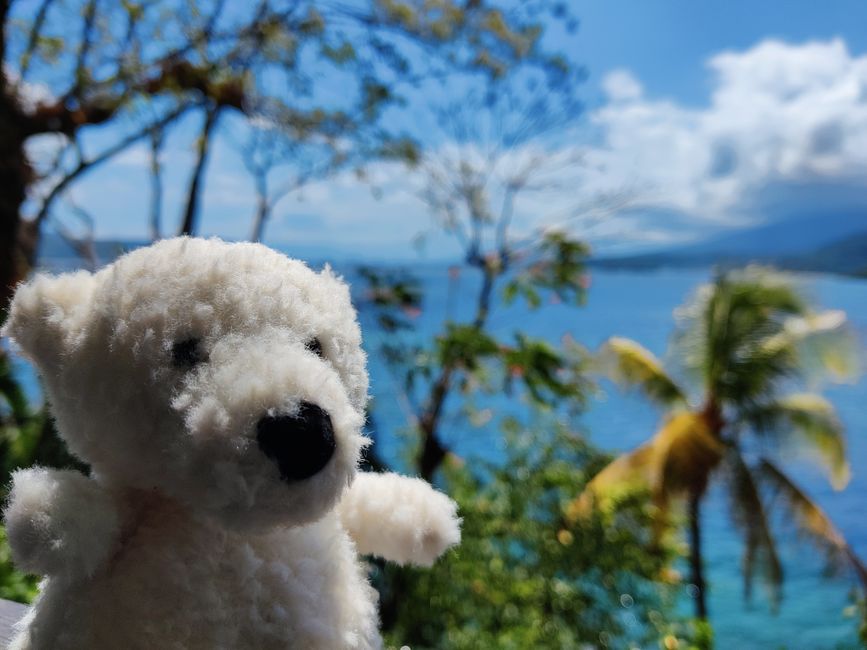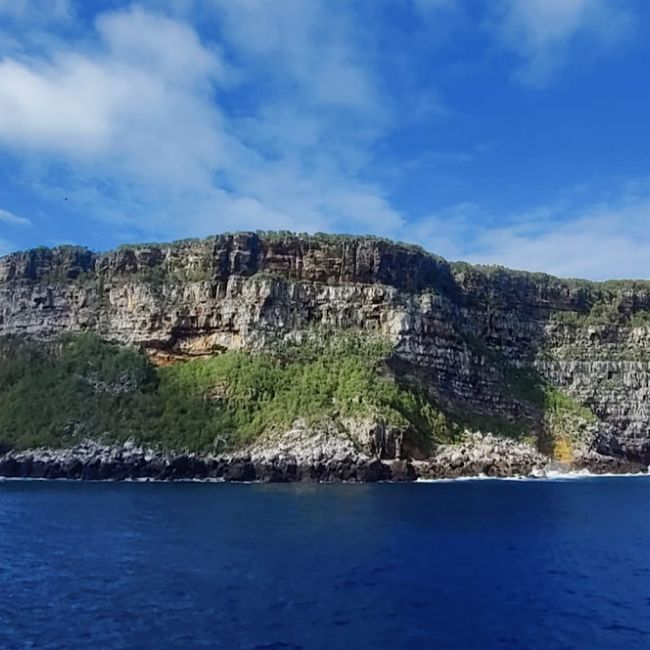Diving in Galapagos Part 3
Argitaratu: 21.02.2024
Harpidetu Buletinera
As described in parts 1 and 2, the underwater world looks magnificent. But what does it look like above water and what can you see here?
First about the ship: The Tiburon Explorer is only about 2 years old. And with sunshine and on the first day everything still seems to be fine. Sun deck with 3 loungers, 4 seats with cushions in the front area, warm whirlpool, cabins with large windows. Everything seems perfect.
On the second day, the crew had removed the seat cushions from the front chairs. So sitting on the frame is only partially possible and not comfortable. Of course the birds flying along like to shit wherever, but that's nature.
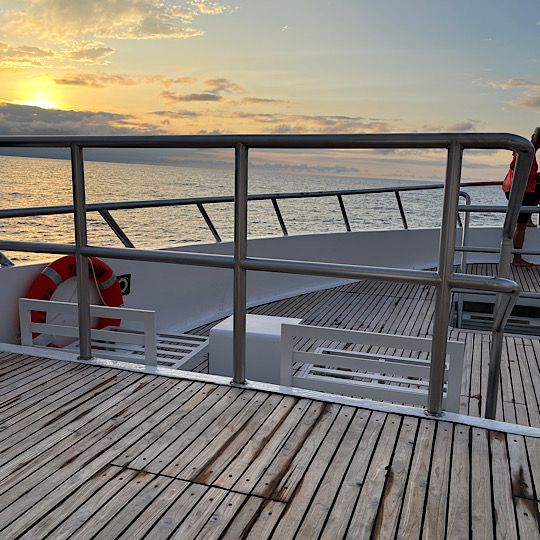
Rain sets in on the fourth day. It's nature and shouldn't be a problem. Not so with the Tiburon Explorer. The sun deck consists of wooden planks with gaps filled with plastic. However, not professionally. Numerous places have been patched with the wrong material and many places are open. In short, like Swiss cheese. And the water that runs through these holes first ends up in the ceiling between the sun deck and the salon and initially drips in some places. Towels are put down everywhere and the tables are moved aside. You do what you can.
It's now dripping into our cabin, and not just in the bathroom, but right on the mattress. Since there is no telling when the rain will stop, we are offered a cabin one floor down. Although it is larger, it only has small windows at water level and what is much worse: access to the fuel supply (diesel)! That's what it smells like, because the flap next to the bed was only temporarily attached and the connection to the tank was not tightly closed. They also try to deal with this problem with tape and a pipe wrench, but the smell doesn't go away completely.
In the meantime the rain has started again. It's not just dripping in the salon now; Depending on the movement of the ship, whole gushes of water come out of the false ceiling. In the false ceiling there are many electrical cables, fire alarms, loudspeakers, WiFi routers, etc. etc. We wonder when a short circuit will paralyze the ship. So security is different. At the beginning of the trip, all guests were asked to only charge all devices outside the cabins due to the risk of fire and short circuits... ok. Understand.
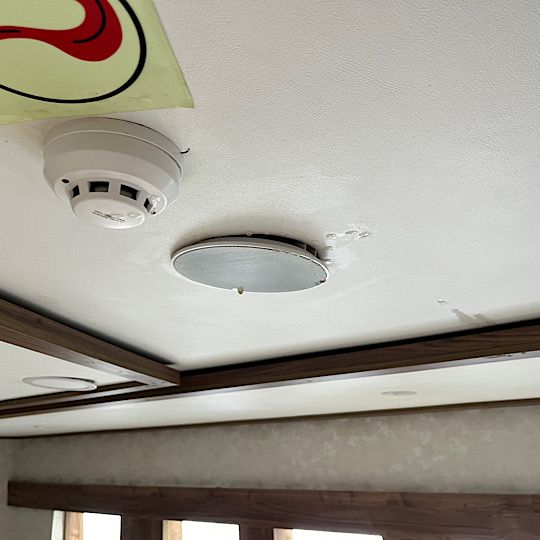
The crew isn't happy about the rain either, but what can you do? Your employer obviously sent you on your journey with defective work equipment. Money has to be made! Attempts have also been made to fill up the not yet complete cast of guests; with high discounts (30-40%) and concessions on the participation requirements. The prerequisite was 50 dives. Now guests have been taken on just 25 dives. There are also good divers with 25 dives, no question. But why do we set rules?
The food on board is not bad, but far too much and presented more like a cafeteria. I would prefer quality over quantity. Therefore, a lot was wasted and returned. Wouldn't it have been possible to ask guests beforehand what they like or to inform them about what's available?
The crew tries to save the situation with various entertainment, but it ends up being clumsy drinking games.
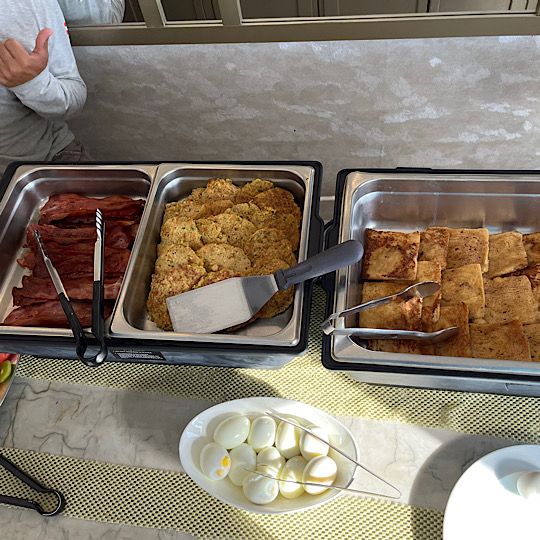
On the first day, the diving guides presented the schedule for the week and the basic rules of conduct. The briefing before each dive was shown on the monitor using Powerpoint. Here it would be good to delve a little deeper into the animal world than just repeating the previous and obvious. In addition, a lot of the information was not consistent because it was simply copied and pasted from old presentations. Water temperature instead of 20°C -> actually 28°C. Why is it not possible to check the water temperature shortly before the dive? Or another example: Team Dolphin??? There was only Team Shark and Orca. In short: All presentations could have been adjusted and brought into shape in 5-10 minutes - unfortunately we didn't. Important things for the divers were not sufficiently communicated. In the worst case scenario, this in turn leads to security deficits. At the dive sites the guides often dived against the current for minutes (10+)? Checking which direction the current is in and then changing the entry point and diving with the current - none!
And a guide didn't care whether you dived into a Deco situation or whether a diver caught a Deco level. Well, yes, the main thing is that they always emphasized beforehand how important safety is... but he also played the class clown every now and then to raise the mood a little.
On the first day on board there was also a small evacuation drill with an explanation of the emergency exits. However, the main emergency exit was once inaccessible or crew members had their regular sleeping accommodation behind it. No matter, the main thing is that everyone took part. Nothing will happen.
So that you don't get the impression that everything was bad: Before you got into the pangas, the outboard engines that took you to the diving site, all, really all, crew members pitched in. Above all, the captain. He helped the divers in and out of the wetsuites, checked everyone just before boarding, opened the cylinder valve, greeted each one when they returned and helped wherever he could. For me, the captain was a true leader and the best man on board, despite his limited English skills!
After diving you got a warm drink from Hermann and the warm showers were a dream on the rainy days! That's the nice thing about a liveaboard, short distances, quick in and out.
Another advantage is that the ship has great berths between dives. Right in front of Darwin or Wolf. You stand on the sun deck and look at the hundreds of birds nesting, hunting and circling in the wall on the rock.
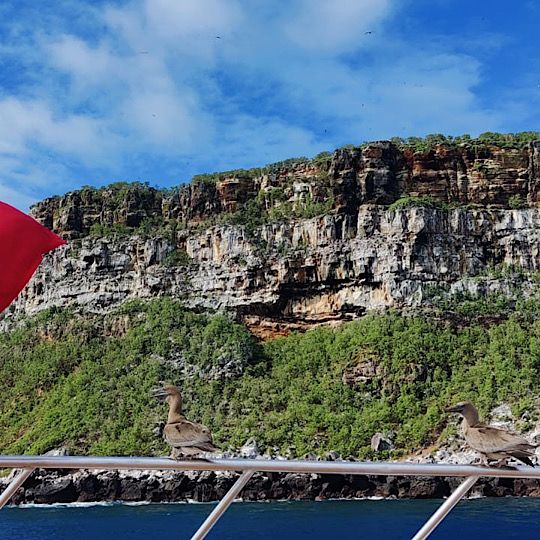
I say to a fellow diver: “I only see that on TV”. He looks over and agrees.
Being so close is an incredible feeling.
Nature has once again compensated for a lot. Unfortunately, the price-performance ratio on the part of the organizer was not right at all.
Harpidetu Buletinera
Erantzun

Bidaien txostenak Ekuador
